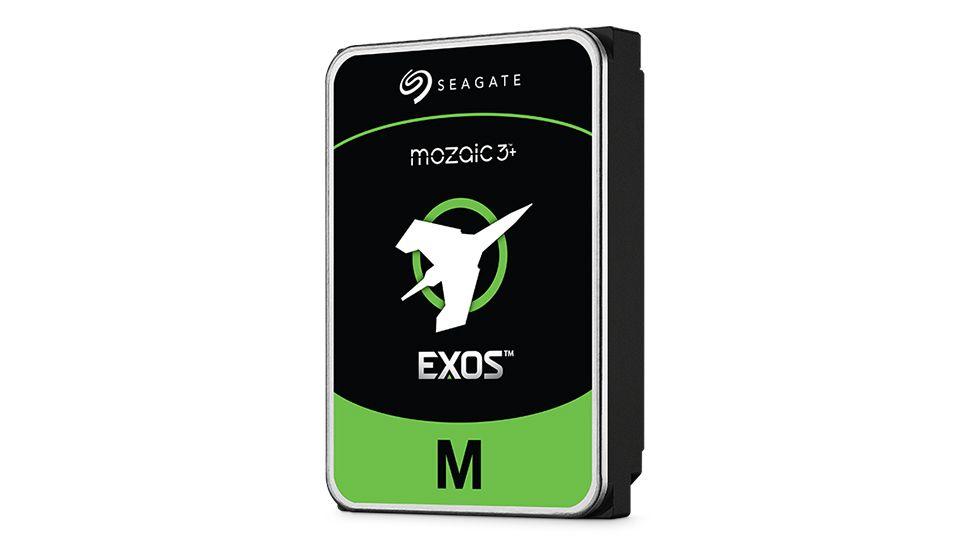- The launch of the 36TB Exos M comes a month after a new 32TB model appeared
- Seagate is now comfortably ahead of archrival Western Digital
- For the first time, 10TB-per-plate technology has also been mentioned
Seagate added a 36TB Exos M model to its growing family of data center hard drives, making it the largest hard drive currently available. The as-yet-unnamed device is based on the company’s mature Mozaic 3+ platform and has been shipped to select customers, most likely hyperscalers like Microsoft or AWS.
The American warehouse company added one 32TB Exos M last monthnearly a year after it added its previous largest drive, a 30TB model. Competitive Western Digital has a 32TB HDD in its range, but unlike the Seagate, it uses 11 platters (instead of 10) to reach this capacity. The same goes for Toshiba; tested the Japanese company 31TB and 32TB models with 10 and 11 dishes.
Platter capacity is something Seagate has been keen to highlight as a unique selling point; its press release mentions that it is the only data storage company that can achieve areal densities of 3.6 TB per plate with a path to 10 TB in the future. It’s a huge 100TB hard drive in the pipeline.
60TB HDDs coming soon
Seagate CEO Dave Mosley also revealed that the company has successfully demonstrated platter capacities in excess of 6 TB per dish in laboratory environments. This means that 60TB hard drives is within reach and should arrive by the end of the decade (or as in marketing lingo, depending on market conditions).
With this 36TB model, Seagate is moving away from CMR and SMR to exclusively embrace HAMR technology; Heat-assisted magnetic recording, Seagate says, enables a 25% cost reduction per TB and a 60% decrease in power consumption per TB. The relentless drive towards cheaper storage is what will keep HDD relevant despite the superiority of SSDs in terms of performance, storage density and power consumption.
122TB SSDs expected to go on sale later this year, targeting the same lucrative data center market but at different levels. At an estimated cost of $80 per TB they would still be 4x or 5X more expensive than a 36TB HDD, but will appeal to certain specific customers.
In a statement, a Dell spokesperson also explained that affordable, large-capacity HDDs will play into AI workloads, supporting use cases such as retrieval augmented generation (RAG), inference, and agentic workflows.
The 36TB HDD is unlikely to ever hit retail in the foreseeable future due to corporate demand; the largest internal hard drive you can buy is a larger-capacity 26TB Western Digital Gold Enterprise HDD, which is usually only available through partners or system integrators.



